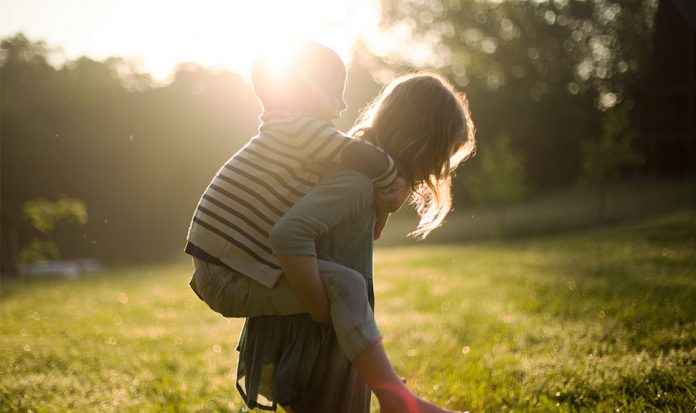If you spend a few minutes each day on social media, then chances are, you’ve also seen these: a popular diver swimming with plastic bags on a popular diving site in Bali, headlines stating that the Pacific garbage patch has increased to thrice its size, and turtles and other wildlife with straws and other plastic stuck on them.
If the photos and videos are not clear enough, our Earth needs help. And if we want our kids to inherit the kind and quality of Earth that we’ve had the honor of enjoying, then we need to clean up our act — by minimizing the waste we produce in our home. Although this might be a daunting task especially if we have babies or small kids at home. Well, here’s an inspiration for you: one family is sharing a few tips on how they were able to transition into a zero-waste lifestyle.
It can be said that Jameson and Mitchie Jimenez’s journey to a more Earth-friendly home started in 2013 when Mitchie started using cloth diapers and cloth wipes for their baby, Lucy. The use of natural and environmentally friendly cleaning products soon followed — which included the use of scrubs and unpaper towels. By 2017, Mitchie incorporated a few of Marie Kondo’s organizing principles and started decluttering their home. From here she started learning and incorporating the 5Rs — Refuse, Reduce, Reuse, Recycle, and Rot, which has significantly minimized the waste they send to the local landfill. The couple has recently shared a few tips could help everyone minimize their own waste at home. Here are a few:
Try to find biodegradable alternatives to plastic body care products.
Posted by Philippine Star on Monday, 23 April 2018
An example the couple cited of this is using bamboo toothbrushes instead of the regular plastic ones. Toothbrushes are regularly changed every 3 months, so this amounts to 4 toothbrushes disposed of per individual per year, which amounts to around 12 toothbrushes sent to the trash per year for a family of 3.
Bring your own mess kit and avoid single-use plastics.
Posted by Philippine Star on Monday, 23 April 2018
Just imagine how many single-use plastics — plastic spoons, plastic forks, styrofoam boxes, tissues are used and disposed of every day by popular fast food chains. You can avoid using these by bringing your own mess kit — which can include steel utensils and straws, and even reusable plastic containers for leftovers, thereby minimizing your carbon footprint.
Bring and use your own cups and tumblers for drinks.
Posted by Philippine Star on Monday, 23 April 2018
If you’re still not keen on bringing a mess kit with you every time you go out, you can take small steps towards the right direction, such as bringing and using your own cups and tumblers for your morning coffee and drinks. Aside from getting discounts on your cup of joe, imagine how much you can save by bringing your own water instead of purchasing bottled mineral water whenever you’re thirsty. You can also use your own cups when purchasing drinks from fast food places and restaurants instead of their disposable plastic cups.
Bring and use eco-bags on grocery runs.
Posted by Philippine Star on Monday, 23 April 2018
Another plastic item you can minimize your use of, are plastic grocery bags. One grocery run for a 3 person household could amount to around 8 bags of groceries, if done twice a week, it could total to 16 plastic bags. That’s 16 plastic bags that will eventually find its way to the landfill or even the ocean. Instead of plastic grocery bags, you can instead bring eco-bags or reusable cloth bags for your groceries. Eco-bags are generally more dependable and have bigger capacities than regular plastic bags, plus they can be reused a number of times. Aside from big capacity eco-bags, you can also use ones to store different fruits and vegetables in, instead of using the small white plastic bags groceries typically offer. You can also bring your own reusable plastic containers for meats and fish products, again minimizing the use of plastic bags used for wet goods.
Consider making your own cleaning products.
Posted by Philippine Star on Monday, 23 April 2018
Jameson also recounts that they have stopped buying commercial detergent and instead, they make and use their own. Mitchie grates Perla bars and mixes them with baking or washing soda, borax, and water and then stores them in reused plastic containers. Aside from the savings generated, it also generates less waste than regularly buying commercial detergent products.
Consider using reusable cloth diapers for your baby.
Posted by Philippine Star on Monday, 23 April 2018
Babies can go through around 6 diapers a day, which amounts to 2,190 pieces of diapers in a year. This could amount to around 6,000+ used if your baby will use disposables until his toddler years. Aside from ending up in landfills, just imagine how much these cost in a year. A more environment-friendly alternative to disposable diapers is reusable cloth diapers. Cloth diapers are washable and can be used a number of times, hence you can use them for each of your kids.
It may seem a daunting lifestyle change, but with a bit of effort you can surely do your part in minimizing waste and maintaining a more Earth-friendly home.
Source: Jameson Jimenez’s Facebook
Join our MomCenter Community on our Facebook page and Facebook group for more insights on motherhood and parenting.





